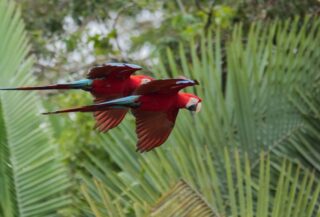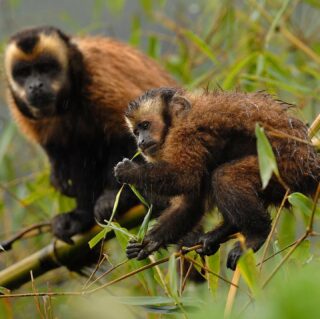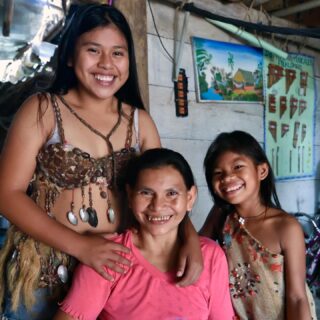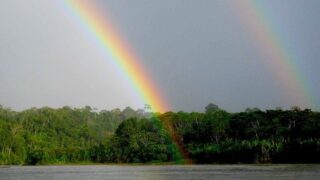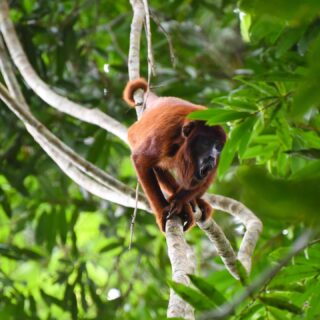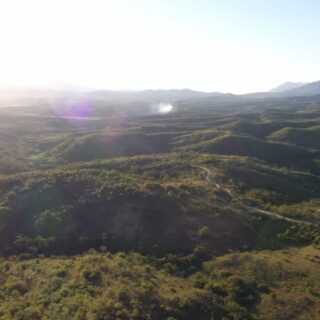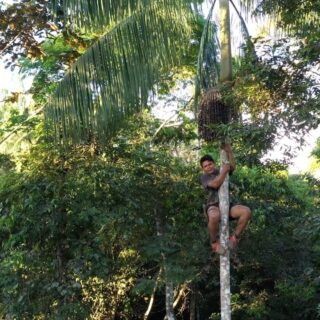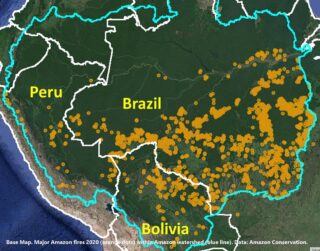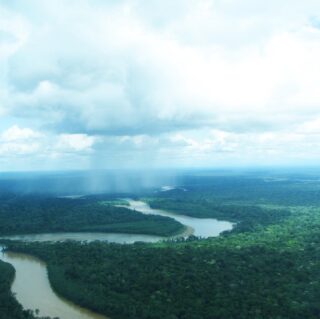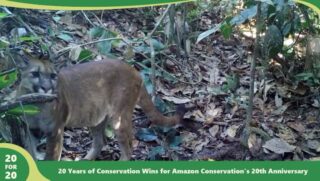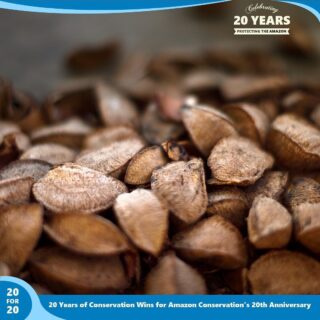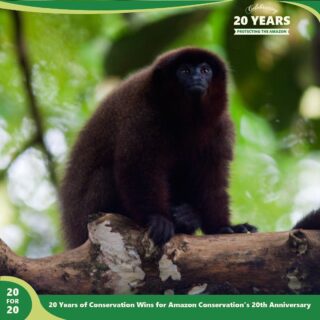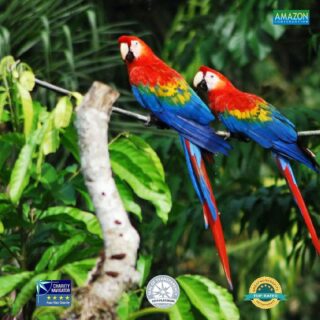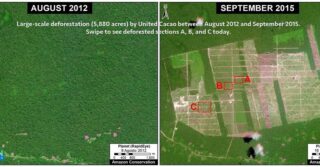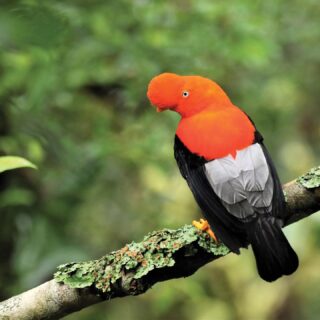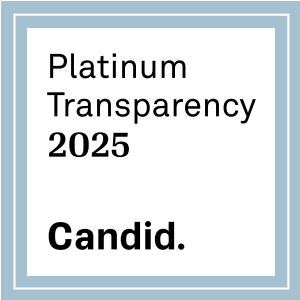Amazon Gap Report: Keeping Score to Safeguard the Amazon
May 5, 2025
Seeing the drastic effects that deforestation has had on the Amazon, many Amazonian nations have begun to coordinate responses for stronger environmental protection, resulting in increased political and financial commitments for conservation initiatives in the Amazon. In 2023’s Belém Declaration (an agreement signed by leaders across 8 Amazonian countries to promote regional cooperation and strengthen environmental governance to protect the Amazon), these nations agreed to “combine the efforts of their governments […] to avoid the point of no return in the Amazon.” However, the challenges to sustain these developments under extractive, and often unsustainable, economies have raised a new question: how can we evaluate and track the progress of these initiatives and their impacts to ensure conservation goals are being met?
As the international community’s attention turns to the Amazon once again leading up to this year’s COP30 in Belém, Brazil, many civil society organizations are increasingly recognizing the need for an evaluation method to assess the gap between scientific recommendations to avoid a tipping point, the ambitions stated by regional governments, and the actual policies implemented to garner solutions at national and sub-national levels. Through the Amazon Conservation Alliance (comprised of Amazon Conservation, Conservación Amazónica – ACCA, and Conservación Amazónica – ACEAA) and its vast network of partners, we have developed a unique concept: creating an ‘Amazon Gap Report’ to assess how the policies and regulations in place align with specific conservation objectives. From these reports, civil society and NGOs can help devise recommendations on how to fill any potential gaps in achieving these goals. Essentially, this gap report can act as a ‘scorecard’ for various Amazonian nations, and could evolve into a regular annual exercise to track progress and link science, policy, and improvements over time.
Earlier this month, our Director of Strategy and Policy Blaise Bodin, attended a meeting in Rondônia, Brazil, with our partners Instituto Centro de Vida (ICV), to discuss the potential of this scorecard system and its implementation leading up to COP30. The organization had previously been working on a localized observatory in the state of Mato Grasso, which would act as a communication platform for civil society, NGOs, and local people to exchange data on deforestation happening in the Amazon. Upon hearing of a potential Amazon-wide version of this, and seeing successes from platforms of similar use such as the Amazon Mining Watch and Clean Air NDC Scorecard, members of ICV brought together partners across the region to assess the relevance of this scorecard system for state-level action, evaluate how existing initiatives to can contribute to new methodologies and input data for this system, and define the priorities and processes for developing evaluation criteria. Furthermore, as Amazon Conservation anticipates its expansion of our iconic landscapes into the productive forests of Brazil to widen the scale of our forest-based economy efforts, partnering with these NGOs can help establish our regional presence in Brazil as a leading conservation organization, increasing our impacts on the ground across the Amazon.
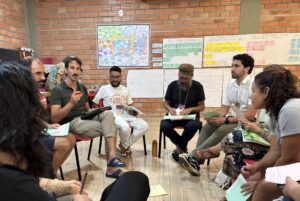
When it comes to developing conservation solutions for the Amazon, creating common methodologies can often be difficult given the complex political contexts across different Amazonian countries. “A central component of these ‘scorecards’ is developing a standardized framework to evaluate the ambition and effectiveness of governments at all levels across the Amazon, which must be both comparable across multiple jurisdictions and capable of generating insights at the regional scale,” explains Blaise. To ensure that the exercise is relevant to local contexts, this project will draw on a vast network of civil society organizations across the Amazon, both for formulating the criteria used for the evaluation and their application to each national and sub-national context.
By implementing these gap reports, we aim to develop these ‘scorecards’ with their application methodologies by this year’s COP30, a globally significant conservation event that can act as a space to present the results and deliver the scores to identified leaders in the region, as well as national and sub-national governments. Amazon Conservation will host a regional workshop with civil society partners at the subnational level in the States of the Brazilian Amazon, along with those in Peru, Bolivia, Ecuador, and Colombia to develop common criteria for assessing the action of governments in terms of:
- Setting of targets related to the Amazon, such as reducing deforestation, emissions from forests, other impacts e.g., mercury pollution, in addition to forest restoration and investments in building forest-based economies
- Policies taken to implement these targets, such as land-use designation and infrastructure planning, and fiscal incentives (both negative and positive)
- Effectiveness of interventions against illegal deforestation and other environmental crimes, assessed through indicators of forest and forest carbon loss, and responsiveness of enforcement authorities to notifications of illegal deforestation cases
- Efforts to secure international funding by assessing preparedness for different types of financing
As we move forward, we anticipate our participation at this year’s COP30 to communicate on the results and call attention to remaining policy gaps, helping ensure long-term conservation in the Amazon and convening all partners contributing to the reports, as well as amplifying indigenous representations.
A special thank you to our partners who are helping us with this initiative:
- Instituto Centro de Vida – ICV (Brazil)
- Science Panel for the Amazon
- Conservación Amazónica – ACCA (Peru)
- Conservación Amazónica – ACEAA (Bolivia)
- Fundación para la Conservación y el Desarrollo Colombia – FCDS (Colombia)
- Fundación EcoCiencia (Ecuador)
- SOS Amazônia (Acre)
- Ecoporé (Rondônia)
- Fepipa (Pará)
- ObservaMT (Mato Grosso)
- Observatório da 163 – Idesam (Amazonas)

